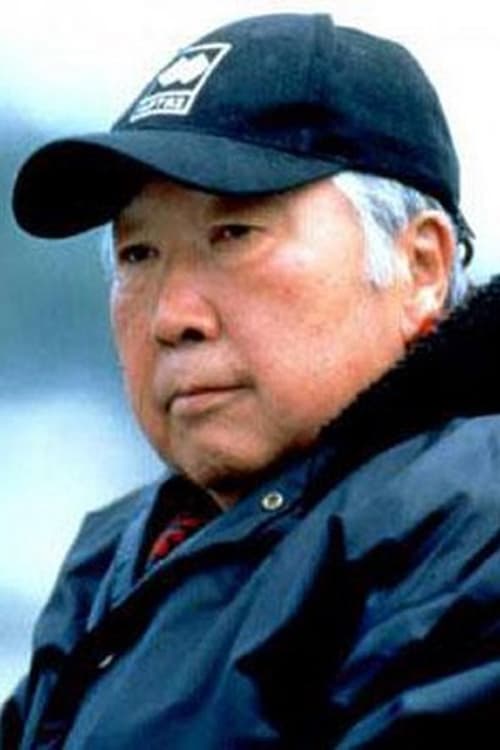
Director
Once directores, once historias, once puntos de vista sobre el atentado contra las Torres Gemelas y el Pentágono el 11 de septiembre del 2001, un suceso que cambió la historia del siglo XXI.
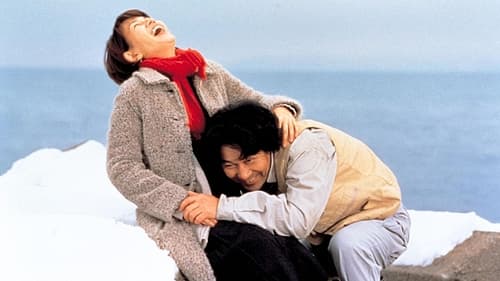
Screenplay
Yosuke Sasano es un hombre en paro, de unos cuarenta años, al que acaba de abandonar su esposa. Cuando un viejo vagabundo le cuenta que tiene escondido el Buda de oro que robó en un templo de Kioto en una lejana casa situada cerca de un puente rojo, Yosuke decide emprender el viaje en su búsqueda. Cuando llega al lugar no encuentra el Buda pero sí a una extraña mujer que vive en la casa .

Director
Yosuke Sasano es un hombre en paro, de unos cuarenta años, al que acaba de abandonar su esposa. Cuando un viejo vagabundo le cuenta que tiene escondido el Buda de oro que robó en un templo de Kioto en una lejana casa situada cerca de un puente rojo, Yosuke decide emprender el viaje en su búsqueda. Cuando llega al lugar no encuentra el Buda pero sí a una extraña mujer que vive en la casa .
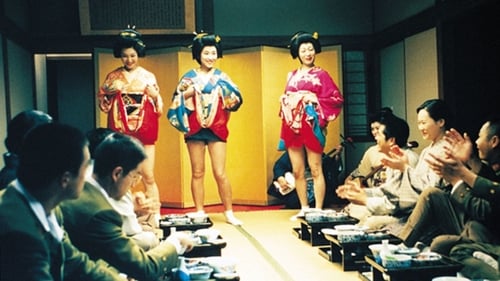
Writer
1945, vísperas de la rendición japonesa. En medio de una tensa atmósfera de guerra, el Doctor Akagi, médico de un pueblo pesquero en una de las islas japonesas, está consternado por la cantidad de personas que caen afectadas de hepatitis, primera causa de muerte en el desnutrido país. Ante esta grave situación decide implicarse para salvar su integridad profesional. Se alía con sus viejos colegas; un monje que ha colgado los hábitos, un cirujano nihilista adicto a la morfina y una mujer, formando así un grupo al margen de la sociedad militar japonesa

Director
1945, vísperas de la rendición japonesa. En medio de una tensa atmósfera de guerra, el Doctor Akagi, médico de un pueblo pesquero en una de las islas japonesas, está consternado por la cantidad de personas que caen afectadas de hepatitis, primera causa de muerte en el desnutrido país. Ante esta grave situación decide implicarse para salvar su integridad profesional. Se alía con sus viejos colegas; un monje que ha colgado los hábitos, un cirujano nihilista adicto a la morfina y una mujer, formando así un grupo al margen de la sociedad militar japonesa
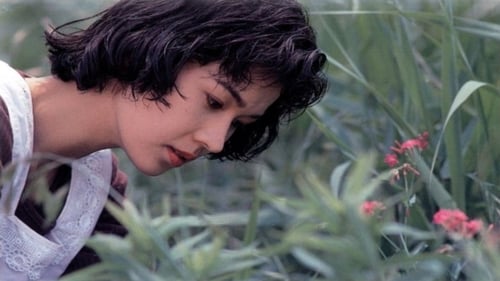
Writer
Después de ocho años en la cárcel por haber matado a su esposa, a la que encontró en la cama con otro hombre, Takuro Yamashita sale en libertad condicional. Cuando estaba en la prisión captura una anguila, que se convierte en su mascota y única compañera. Yamashita se establece en una pequeña población a las afueras de Tokio y regenta una barbería, presidida por un aquario en el que nada su anguila. Un día conoce a Keiko Hattori, una joven que intenta suicidarse y que le recuerda a su esposa. Poco a poco se van conociendo y terminan enamorándose. Cuando la vida comienza a sonreirle, se encuentra con un antiguo compañero de cárcel. Yamashita comprende que toda la lucha por convertirse en un hombre nuevo podría desmoronarse si su pasado es revelado. Sobre todo, teniendo en cuenta el interés de los excéntricos habitantes del pequeño pueblo, por conocer más del nuevo barbero.

Director
Después de ocho años en la cárcel por haber matado a su esposa, a la que encontró en la cama con otro hombre, Takuro Yamashita sale en libertad condicional. Cuando estaba en la prisión captura una anguila, que se convierte en su mascota y única compañera. Yamashita se establece en una pequeña población a las afueras de Tokio y regenta una barbería, presidida por un aquario en el que nada su anguila. Un día conoce a Keiko Hattori, una joven que intenta suicidarse y que le recuerda a su esposa. Poco a poco se van conociendo y terminan enamorándose. Cuando la vida comienza a sonreirle, se encuentra con un antiguo compañero de cárcel. Yamashita comprende que toda la lucha por convertirse en un hombre nuevo podría desmoronarse si su pasado es revelado. Sobre todo, teniendo en cuenta el interés de los excéntricos habitantes del pequeño pueblo, por conocer más del nuevo barbero.

Himself
Documental sobre la carrera del director japonés Shohei Imamura, construido a partir de entrevistas con el realizador junto a su actor fetiche, Kazuo Kitamura Estimulados por el sake, ambos conversan de forma distendida, reviviendo décadas de amistad y cine en común. Sin tapujos, Imamura desgrana las claves de su cine que, según Paulo Rocha, es una amalgama entre la sensualidad vitalista de Jean Renoir y la desmesura de Rabelais.

Executive Producer
La lluvia negra la constituyen las particulas radiactivas procedentes de la explosión de las bombas que Estados Unidos lanzó sobre Hiroshima y Nagasaki. Basada en una famosa novela de Masuji Ibuse sobre la devastación causada por la bomba atómica, "Lluvia negra" relata las consecuencias de la explosión atómica en Hiroshima. La película se centra en la historia de una joven, Yasuko, que se vio sorprendida por esta lluvia radioactiva que cayó en los alrededores de la tristemente célebre ciudad. Las posibles consecuencias de su contacto con la radiación han dado lugar a un sinfín de habladurías entre los pretendientes de la joven: ¿estará enferma?, ¿podrá tener hijos? Su familia rememora aquellos días aciagos, tratando de conjurar el peligro que la acecha.

Writer
La lluvia negra la constituyen las particulas radiactivas procedentes de la explosión de las bombas que Estados Unidos lanzó sobre Hiroshima y Nagasaki. Basada en una famosa novela de Masuji Ibuse sobre la devastación causada por la bomba atómica, "Lluvia negra" relata las consecuencias de la explosión atómica en Hiroshima. La película se centra en la historia de una joven, Yasuko, que se vio sorprendida por esta lluvia radioactiva que cayó en los alrededores de la tristemente célebre ciudad. Las posibles consecuencias de su contacto con la radiación han dado lugar a un sinfín de habladurías entre los pretendientes de la joven: ¿estará enferma?, ¿podrá tener hijos? Su familia rememora aquellos días aciagos, tratando de conjurar el peligro que la acecha.

Director
La lluvia negra la constituyen las particulas radiactivas procedentes de la explosión de las bombas que Estados Unidos lanzó sobre Hiroshima y Nagasaki. Basada en una famosa novela de Masuji Ibuse sobre la devastación causada por la bomba atómica, "Lluvia negra" relata las consecuencias de la explosión atómica en Hiroshima. La película se centra en la historia de una joven, Yasuko, que se vio sorprendida por esta lluvia radioactiva que cayó en los alrededores de la tristemente célebre ciudad. Las posibles consecuencias de su contacto con la radiación han dado lugar a un sinfín de habladurías entre los pretendientes de la joven: ¿estará enferma?, ¿podrá tener hijos? Su familia rememora aquellos días aciagos, tratando de conjurar el peligro que la acecha.
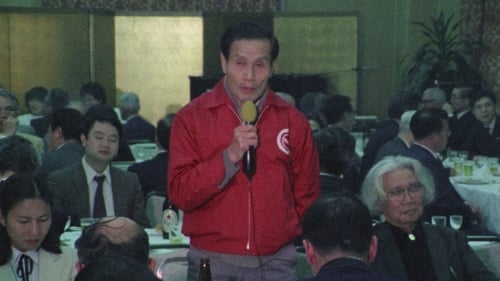
Associate Producer
Kenzo Okuzaki, a 62-year-old veteran of the New Guinea campaign in World War II, sets out to conduct interviews with survivors and relatives to find the truth behind atrocities committed while the Japanese garrison was surrounded, in particular the unexplained killing of two Japanese privates in his unit.
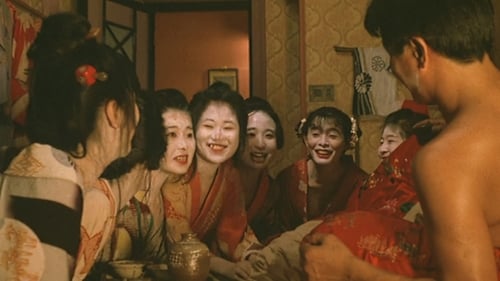
Writer
At the time between the World Wars, Japan is involved in empire-building throughout East and Southeast Asia. After a brief career as a low-level military adventurer, Iheiji sets up chains of brothels throughout Asia. As Japan's power in the region grows, so does Iheiji's prosperity and patriotism.

Director
At the time between the World Wars, Japan is involved in empire-building throughout East and Southeast Asia. After a brief career as a low-level military adventurer, Iheiji sets up chains of brothels throughout Asia. As Japan's power in the region grows, so does Iheiji's prosperity and patriotism.

Producer
2 almost inseparable friends. The talented painter recognized by all decided to leave the town where they live and become an artist and the shy poet who only sees his future in his mother's business.

Self
Documental realizado por Kazuo Inoue acerca de la vida y carrera de Yasujirô Ozu, en el cual participa su asistente Shohei Imamura (director de The Pornographers y The Eel), los críticos Donald Richie y Tadao Sato, y los actores estrellas de sus películas Chishu Ryu, Mariko Okada y Haruko Sugimura, entre otros. Un infaltable para los fanáticos de la belleza del cine de este gran maestro.
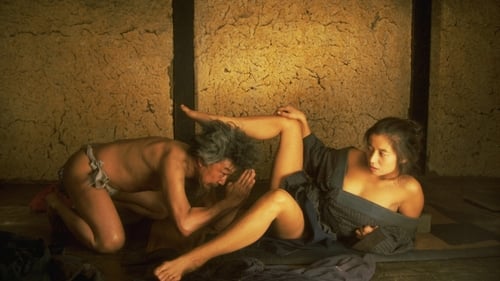
Screenplay
Era una vieja ley del pueblo, de un tiempo tan lejano que ya nadie lo recordaba; Al alcanzar los 70 los ancianos debían abandonar el pueblo para ir a vivir en la cima de la montaña Narayama. Una sentencia de muerte despiadada que sumía en la tristeza y la desesperación a las familias cuando tenían que enviar a sus mayores a la montaña. Orin tiene 69 años y se acerca el momento de partir hacia la montaña, pero todavía tiene que encontrar una mujer a su hijo. Remake de la película "Narayama bushiko", dirigida en 1958 por Keisuke Kinoshita.

Director
Era una vieja ley del pueblo, de un tiempo tan lejano que ya nadie lo recordaba; Al alcanzar los 70 los ancianos debían abandonar el pueblo para ir a vivir en la cima de la montaña Narayama. Una sentencia de muerte despiadada que sumía en la tristeza y la desesperación a las familias cuando tenían que enviar a sus mayores a la montaña. Orin tiene 69 años y se acerca el momento de partir hacia la montaña, pero todavía tiene que encontrar una mujer a su hijo. Remake de la película "Narayama bushiko", dirigida en 1958 por Keisuke Kinoshita.

Screenplay
The film depicts carnivalesque atmosphere summed up by the cry "Ei ja nai ka" ("Why not?") in Japan in 1867 and 1868 in the days leading to the Meiji Restoration. It examines the effects of the political and social upheaval of the time, and culminates in a revelrous march on the Tokyo Imperial Palace, which turns into a massacre. Characteristically, Imamura focuses not on the leaders of the country, but on characters in the lower classes and on the fringes of society.

Producer
The film depicts carnivalesque atmosphere summed up by the cry "Ei ja nai ka" ("Why not?") in Japan in 1867 and 1868 in the days leading to the Meiji Restoration. It examines the effects of the political and social upheaval of the time, and culminates in a revelrous march on the Tokyo Imperial Palace, which turns into a massacre. Characteristically, Imamura focuses not on the leaders of the country, but on characters in the lower classes and on the fringes of society.

Director
The film depicts carnivalesque atmosphere summed up by the cry "Ei ja nai ka" ("Why not?") in Japan in 1867 and 1868 in the days leading to the Meiji Restoration. It examines the effects of the political and social upheaval of the time, and culminates in a revelrous march on the Tokyo Imperial Palace, which turns into a massacre. Characteristically, Imamura focuses not on the leaders of the country, but on characters in the lower classes and on the fringes of society.

Director
Enokizu es un criminal al que le encanta cometer atrocidades y despiadados crímenes. Toda la policía de Japón le persigue, pero siempre logra escapar. Un día Enokizu conoce a una chica que trabaja en un burdel, y los dos se enamoran...
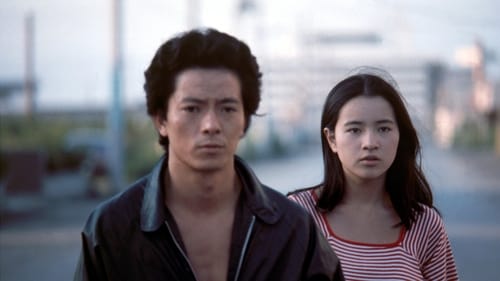
Producer
Though his parents help him run the family business, Jun still feels persecuted by their love; when they bar him from meeting with his girlfriend, tensions increase.

Himself
Karayuki-san, the Making of a Prostitute is a 1975 Japanese film by director Shohei Imamura. It is a documentary on one of the Japanese "karayuki-san," who were women that were taken from their homes in Japan and used as prostitutes in the post-war period. Many of these women were told that they were doing this to support their families because of the extreme poverty that the war left much of Japan to live in. Imamura focuses on a particular such woman who was sent to Malaysia and never returned to Japan. Joan Mellen, in The Waves at Genji's Door, called this film, "Perhaps the most brilliant and feeling of Imamura's fine documentaries."

Director
Karayuki-san, the Making of a Prostitute is a 1975 Japanese film by director Shohei Imamura. It is a documentary on one of the Japanese "karayuki-san," who were women that were taken from their homes in Japan and used as prostitutes in the post-war period. Many of these women were told that they were doing this to support their families because of the extreme poverty that the war left much of Japan to live in. Imamura focuses on a particular such woman who was sent to Malaysia and never returned to Japan. Joan Mellen, in The Waves at Genji's Door, called this film, "Perhaps the most brilliant and feeling of Imamura's fine documentaries."

Himself
“In Search of Unreturned Soldiers was about former soldiers of the Japanese army who chose not to return to Japan after the war. I found several of them who had remained in Thailand. Two years later, I invited one of them to make his first return visit to Japan and documented it in Outlaw-Matsu Returns Home. During the filming, my subject Fujita asked me to buy him a cleaver so that he could kill his ‘vicious brother.’ I was shocked, and asked him to wait a day so that I could plan how to film the scene. By the next morning, to my relief, Fujita had calmed down and changed his mind about killing his brother. But I couldn’t have had a sharper insight into the ethical questions provoked by this kind of documentary filmmaking.” —Shôhei Imamura

Director
“In Search of Unreturned Soldiers was about former soldiers of the Japanese army who chose not to return to Japan after the war. I found several of them who had remained in Thailand. Two years later, I invited one of them to make his first return visit to Japan and documented it in Outlaw-Matsu Returns Home. During the filming, my subject Fujita asked me to buy him a cleaver so that he could kill his ‘vicious brother.’ I was shocked, and asked him to wait a day so that I could plan how to film the scene. By the next morning, to my relief, Fujita had calmed down and changed his mind about killing his brother. But I couldn’t have had a sharper insight into the ethical questions provoked by this kind of documentary filmmaking.” —Shôhei Imamura

Director
Shohei Imamura’s short documentary.

Self
Shohei Imamura’s short documentary.
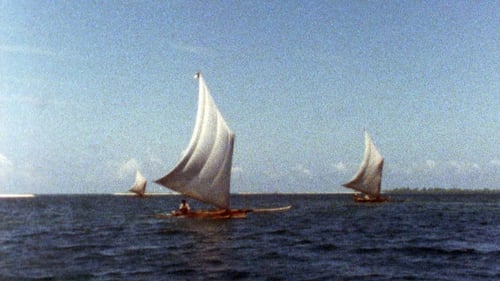
Writer
By going to the Philippines, Imamura comes to meet people living in an extreme poverty. He discovers very quickly that some communities are under the control of cruel & armed pirates. Imamura will come to meet those men in order to understand their position.

Himself
By going to the Philippines, Imamura comes to meet people living in an extreme poverty. He discovers very quickly that some communities are under the control of cruel & armed pirates. Imamura will come to meet those men in order to understand their position.

Director
By going to the Philippines, Imamura comes to meet people living in an extreme poverty. He discovers very quickly that some communities are under the control of cruel & armed pirates. Imamura will come to meet those men in order to understand their position.

Director
In Thailand, three Japanese soldiers, left in the jungle more than a quarter of a century after their country's defeat, come together to discuss what their life was like during and after the war.
Part two of Imamura's quest for Japanese soldiers who stayed behind after the war.
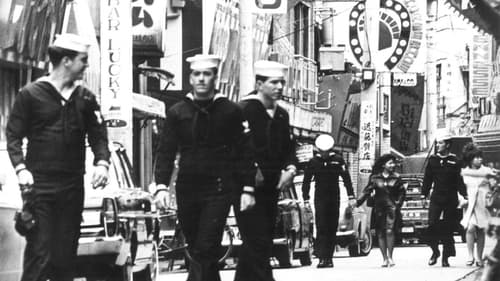
Writer
A documentary film showcasing life in postwar Japan as seen through the eyes of a bar hostess.

Director
A documentary film showcasing life in postwar Japan as seen through the eyes of a bar hostess.

Director
Famed filmmaker tracks down former Japanese soldiers in Malaysia.

Writer
Un ingeniero de Tokyo llamado Kariya llega a una primitiva isla tropical para excavar un pozo que suministre agua a los campos de azúcar. En la isla, cuenta con la asistencia de Kametaro, un miembro de la familia Futori. Nekichi Futori está encadenado en un hoyo que debe ser excavado porque cree que debe apaciguar a los dioses antes de que acaben con la protección de la isla. Nekichi está enamorado de su hermana Uma, sacerdotisa chamán en el templo sagrado, que contiene el único agua potable cerca del campo de azúcar. Asimismo, ella es la amante de Ryu, el jefe del campo. El patriarca de los Futori intenta que el ingeniero se case con su hija retrasada Toriko. (FILMAFFINITY)

Director
Un ingeniero de Tokyo llamado Kariya llega a una primitiva isla tropical para excavar un pozo que suministre agua a los campos de azúcar. En la isla, cuenta con la asistencia de Kametaro, un miembro de la familia Futori. Nekichi Futori está encadenado en un hoyo que debe ser excavado porque cree que debe apaciguar a los dioses antes de que acaben con la protección de la isla. Nekichi está enamorado de su hermana Uma, sacerdotisa chamán en el templo sagrado, que contiene el único agua potable cerca del campo de azúcar. Asimismo, ella es la amante de Ryu, el jefe del campo. El patriarca de los Futori intenta que el ingeniero se case con su hija retrasada Toriko. (FILMAFFINITY)

Producer
Rokurō starts a part-time job on a fishing boat, but the ship has an engine failure in the middle of the Pacific Ocean.

Writer
Rokurō starts a part-time job on a fishing boat, but the ship has an engine failure in the middle of the Pacific Ocean.

Writer
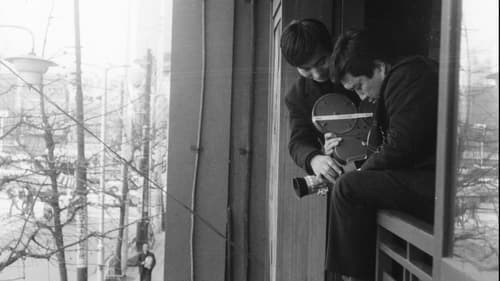
Producer
A Man Vanishes examines the concept of Johatsu, tackling the phenomenon of people missing in Japan over the years. It picks one such person from the list, someone who had seemed to disappear from the face of the earth due to embezzlement from his company, and the filmmakers begin an investigative documentary into the reasons behind and attempt at tracking him down.

Self
A Man Vanishes examines the concept of Johatsu, tackling the phenomenon of people missing in Japan over the years. It picks one such person from the list, someone who had seemed to disappear from the face of the earth due to embezzlement from his company, and the filmmakers begin an investigative documentary into the reasons behind and attempt at tracking him down.

Director
A Man Vanishes examines the concept of Johatsu, tackling the phenomenon of people missing in Japan over the years. It picks one such person from the list, someone who had seemed to disappear from the face of the earth due to embezzlement from his company, and the filmmakers begin an investigative documentary into the reasons behind and attempt at tracking him down.

Screenplay
Subu makes pornographic films. He sees nothing wrong with it. They are an aid to a repressed society, and he uses the money to support his landlady, Haru, and her family. From time to time, Haru shares her bed with Subu, though she believes her dead husband, reincarnated as a carp, disapproves. Director Shohei Imamura has always delighted in the kinky exploits of lowlifes, and in this 1966 classic, he finds subversive humor in the bizarre dynamics of Haru, her Oedipal son, and her daughter, the true object of her pornographer-boyfriend’s obsession. Imamura’s comic treatment of such taboos as voyeurism and incest sparked controversy when the film was released, but The Pornographers has outlasted its critics, and now seems frankly ahead of its time.

Producer
Subu makes pornographic films. He sees nothing wrong with it. They are an aid to a repressed society, and he uses the money to support his landlady, Haru, and her family. From time to time, Haru shares her bed with Subu, though she believes her dead husband, reincarnated as a carp, disapproves. Director Shohei Imamura has always delighted in the kinky exploits of lowlifes, and in this 1966 classic, he finds subversive humor in the bizarre dynamics of Haru, her Oedipal son, and her daughter, the true object of her pornographer-boyfriend’s obsession. Imamura’s comic treatment of such taboos as voyeurism and incest sparked controversy when the film was released, but The Pornographers has outlasted its critics, and now seems frankly ahead of its time.

Director
Subu makes pornographic films. He sees nothing wrong with it. They are an aid to a repressed society, and he uses the money to support his landlady, Haru, and her family. From time to time, Haru shares her bed with Subu, though she believes her dead husband, reincarnated as a carp, disapproves. Director Shohei Imamura has always delighted in the kinky exploits of lowlifes, and in this 1966 classic, he finds subversive humor in the bizarre dynamics of Haru, her Oedipal son, and her daughter, the true object of her pornographer-boyfriend’s obsession. Imamura’s comic treatment of such taboos as voyeurism and incest sparked controversy when the film was released, but The Pornographers has outlasted its critics, and now seems frankly ahead of its time.
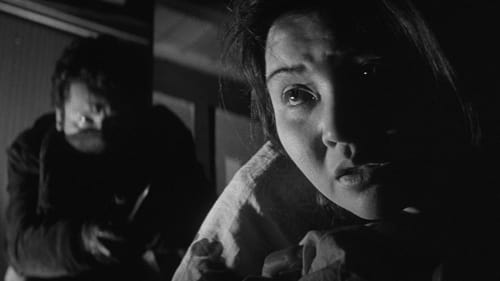
Screenplay
Narra la historia de una gris y gorda ama de casa que vive en la pobreza con su pareja de hecho, su hijo de otra mujer y su madre. Cuando es violada por un ladrón, escapa a Japón en busca de una nueva vida con su agresor.

Director
Narra la historia de una gris y gorda ama de casa que vive en la pobreza con su pareja de hecho, su hijo de otra mujer y su madre. Cuando es violada por un ladrón, escapa a Japón en busca de una nueva vida con su agresor.
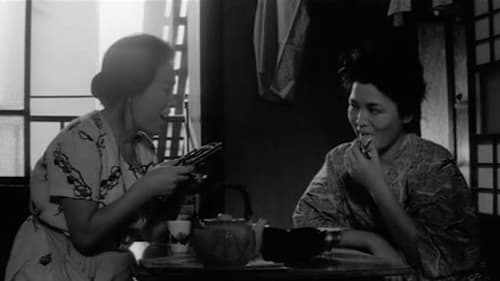
Writer
Película que sigue la vida de Tome, mujer nacida en una familia de clase baja en 1918, que desde pequeña, sufre los maltratos de su padrastro. De joven, emigra de su pueblo natal para ir a trabajar a una fábrica donde mantiene una aventura con su jefe, y posteriormente ganarse la vida como criada y, finalmente, prostituta.

Director
Película que sigue la vida de Tome, mujer nacida en una familia de clase baja en 1918, que desde pequeña, sufre los maltratos de su padrastro. De joven, emigra de su pueblo natal para ir a trabajar a una fábrica donde mantiene una aventura con su jefe, y posteriormente ganarse la vida como criada y, finalmente, prostituta.

Screenplay
One summer day, the chief monk of the Hojuin Temple dies. Harumichi rushes back to town hearing about his brother's death and requests for a grand funeral. He had been unwilling to take over the family business and had chosen a life as a middle school teacher far away from home, but considering the circumstances, he changes his mind. As the new chief of Hojuin, Harumichi scrambles around day after day for donations. He has kept strictly to the straight and narrow, until he passes a bicycle race track where the sounds of cheering fans induce him into a new way of life...

Screenplay
Tajima Yumi, in grade school, is overjoyed when her father says they are moving to an apartment in a big city. But the beautiful home she had imagined is in a slum area called Samurai Village, a little settlement, where people live from hand to mouth. To make things worse, a group of vagrants descends on the already crowded ragpickers' village. The sight depresses and saddens little Yumi, but when her father gives up drinking, it makes up for everything in her eyes, and when he runs past liquor shops to avoid temptation, Yumi's laughter rings out merrily again. A unique social drama depicting the growth of a new generation that confronts the world of adults full of vanity in the image of a girl living in poverty.

Screenplay
En Kawaguchi, al norte de Tokio en la década de los 60, esta sencilla historia narra la vida de los pobres trabajadores de una fundición y sus familias, y los sueños de superación de una chica a través de la educación superior. (FILMAFFINITY)
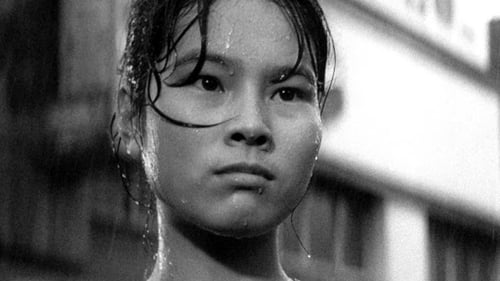
Director
Kinta, un matón adolescente, está entusiasmado porque ha conseguido trabajo como supervisor de la piara de una base americana local, con el cual podrá desviar comida al mercado negro y conseguir unos buenos ingresos para su banda yakuza. Su novia Hiroku espera que deje la yakuza y consiga un trabajo honesto, aunque ella no sea un ejemplo de virtud, trabajando como prostituta. La trama sigue esta relación complicada, con el trasfondo de la corrupción, con el resultado del choque de las fuerzas de ocupación contra la pobreza y las aspiraciones del país nipón tras la guerra.

Screenplay
La película narra la historia de cuatro huérfanos que habitan en una ciudad minera empobrecida. El argumento tine como base el diario de una adolescente de 10 años zainichi (coreano-japonesa). Fue una de las primeras películas que trataron el tema de la identidad zainichi y sus luchas en Japón. (FILMAFFINITY)

Director
La película narra la historia de cuatro huérfanos que habitan en una ciudad minera empobrecida. El argumento tine como base el diario de una adolescente de 10 años zainichi (coreano-japonesa). Fue una de las primeras películas que trataron el tema de la identidad zainichi y sus luchas en Japón. (FILMAFFINITY)

Screenplay
Set in post-war Japan, a group of five, four men and one woman, gathers in the basement of a butcher shop to dig up a cache of morphine buried during the war. A grimly humorous tale of twisted relationships as one by one each of the group is eliminated.

Director
Set in post-war Japan, a group of five, four men and one woman, gathers in the basement of a butcher shop to dig up a cache of morphine buried during the war. A grimly humorous tale of twisted relationships as one by one each of the group is eliminated.

Screenplay
This short comedy concerns the extramarital affair of a drugstore owner. It is based on a popular song by the star of the film, Frank Nagai.

Director
This short comedy concerns the extramarital affair of a drugstore owner. It is based on a popular song by the star of the film, Frank Nagai.

Director
A rumbunctious and ribald tale of a troupe of travelling actors who alternate highlights of kabuki theatre with strip shows.
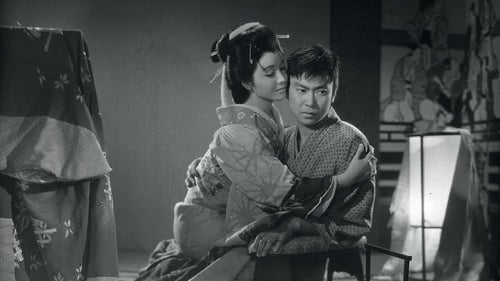
Screenplay
Saheji, a man-about-town, gets stuck at a high-class brothel when he can’t pay the bill. He makes the best of his situation by performing various tasks amidst the tumult of the end of the shogunate—but always by making sure to get a “commission” for his troubles.

Assistant Director
Saheji, a man-about-town, gets stuck at a high-class brothel when he can’t pay the bill. He makes the best of his situation by performing various tasks amidst the tumult of the end of the shogunate—but always by making sure to get a “commission” for his troubles.

Assistant Director
Reiko, who tolerates abuse in her marriage to a man 23 years her senior, is friends with Mayumi, a beautiful widow. Reiko meets her husband’s business rival, a young, capable businessman, and falls for him. Meanwhile, Mayumi enters into a relationship with Shimotsuma, a friend of her late husband.

Second Assistant Director
In 1906, after finishing a tough migrant job in the Philippines, Takichi has returned to Japan. He starts to work as a rickshaw driver, but his lover had died of an illness, leaving a baby girl, Hatsue. Hatsue grows up beautifully and falls in love with Shintaro. But Takichi objects to their relationship...
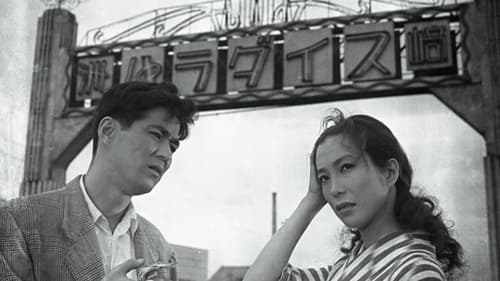
Assistant Director
A jobless young couple, Yoshigi and Tsutue, wind up at the outskirts of the Suzaki red-light district in Tokyo. Tsutue talks her way into a job pouring sake for male customers at a small bar run by a sympathetic older woman, while Yoshigi is shunted off into a nearby noodle shop, where he gets a job delivering noodles. Tsutue charms and runs off with one of her clients. Yoshigi, ignoring the attentions of a sweet co-worker, pursues Tsutue.

Assistant Director
Haruki Murakami is a successful family man and the head of a camera company. Unbeknownst to Murakami, his arrogant son oscillates between a mistress and a new lover who sings at a nightclub. When Murakami’s disabled daughter befriends the mistress, the affair throws the family into turmoil.

Writer
Haruki Murakami is a successful family man and the head of a camera company. Unbeknownst to Murakami, his arrogant son oscillates between a mistress and a new lover who sings at a nightclub. When Murakami’s disabled daughter befriends the mistress, the affair throws the family into turmoil.
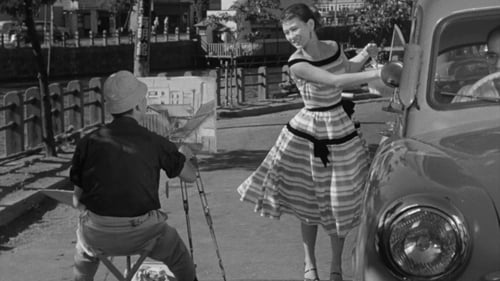
Assistant Director
In the thriving Tokyo neighborhood of Ginza, a woman in the process of selling her estranged husband’s art collection attempts to identify the man who painted her own portrait fifteen years prior.

First Assistant Director
Sonejiro sacrifices all comfort to devote himself to research. Young housewife Yachiyo is disappointed with her husband Kappei, who is more attracted to mountain climbing and another girl. When Yachiyo’s father is introduced to Sonejiro, good will turns evil, and all happiness is at stake.
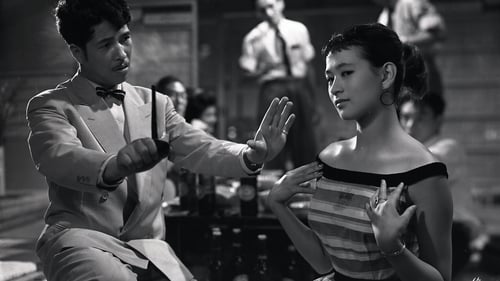
First Assistant Director
The female members of the family of the Minister of Health and Welfare, who has just proposed a program of birth control, become pregnant one after the other. - Nikkatsu

Assistant Director
Mokichi es el padre viudo de tres hijas, con las que vive en las instalaciones de un templo desde la guerra. En la película, las tres hijas se involucran en una especie de relación complicada. Las hermanas y sus Hombres adjuntos están diseñados deliberadamente como figuras alegóricas sobre las cambiantes condiciones sociales. Una comedia maravillosamente divertida, a veces graciosa, entre Nara y Tokio, Adagio y Allegro, Ayer y Hoy, en busca de una mañana.
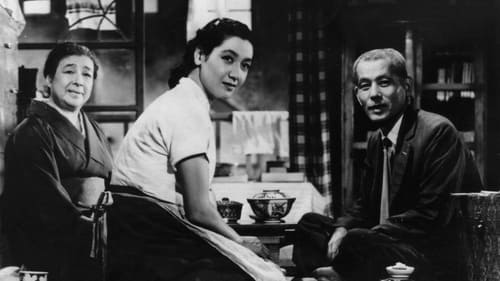
Second Assistant Director
Una pareja de ancianos viaja a Tokio para visitar a sus hijos, pero ninguno de ellos tiene tiempo para atenderlos, por lo que deciden enviarlos a un balneario. Cuando regresan, la madre pasa una noche en la casa de una nuera, viuda de uno de sus hijos. A diferencia de sus cuñados, Noriko muestra afecto por sus suegros y conforta a la anciana.
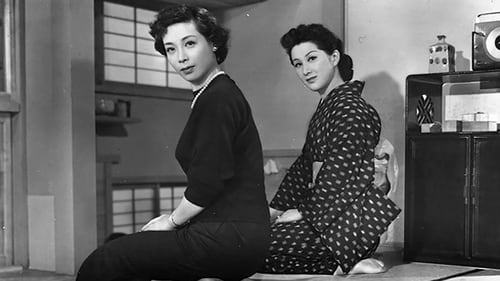
Assistant Director
Takeo, una mujer caprichosa de la alta sociedad de Tokio, se aburre con su marido, un hombre tranquilo, que se ha educado en el campo, aunque ahora es ejecutivo de una empresa.
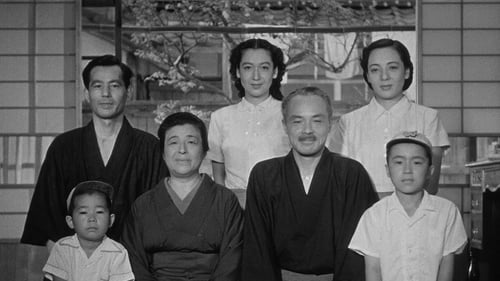
Assistant Director
En el Tokio de la posguerra, los miembros de una familia convencional llevan una vida tranquila y serena. Su única preocupación es la soltería de Noriko, la hija mayor, que ya tiene 28 años. Pero la sociedad está cambiando, y Noriko, que trabaja y se divierte con sus amigas, no siente la menor necesidad de tener un marido. Sin embargo, su hermano considera muy imprudente la actitud independiente de la chica. (FILMAFFINITY)

